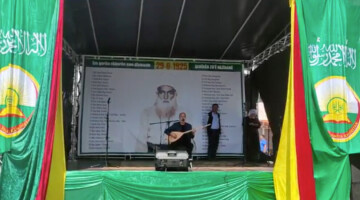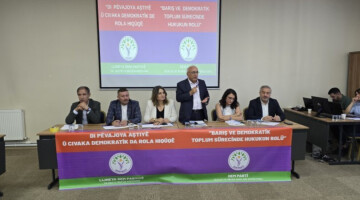The Foreign Affairs Committee of the United Kingdom Parliament released a report mainly consisting of criticism against Turkey. The report was declared concurrently with the UK foreign secretary Boris Johnson’s visit to Turkey.
Regarding the referendum set to take place on April 16, the report stated that: “It is difficult to foresee a fair, free and credible referendum when media, opposition MPs and civic organisations critical of the government have been closed down or silenced. The current period of Emergency Rule has also significantly expanded the power of the executive while simultaneously restricting certain rights and freedoms. Both the deep divisions that we have observed within Turkish society and the intensity of the competition to control the state are likely to be worsened by the referendum campaign whatever its outcome.”
According to the report, a totally free trade agreement with Turkey may not be possible for the UK due to the current relationship that Turkey has with the EU and the EU Customs Union.
With regard to the failed coup attempt of 15 July the report said: “Given the brutality of the events of 15 July, the severity of the charges made against the Gülenists, and the scale of the purges of perceived Gülenists that has been justified on this basis, there is a relative lack of hard, publicly–available evidence to prove that the Gülenists as an organisation were responsible for the coup attempt in Turkey. While there is evidence to indicate that some individual Gülenists were involved, it is mostly anecdotal or circumstantial, sometimes premised on information from confessions or informants, and is—so far—inconclusive in relation to the organisation as a whole or its leadership. As we publish this report, nine months after the coup attempt, neither the UK nor Turkish governments can point us to one person who has been found guilty by a court of involvement in the coup attempt, let alone anyone being found guilty with evidence of involvement with Gülenist motives.”
The report also mentioned the consequences of the ongoing State of Emergency in Turkey, recalling that almost 100,000 people were permanently dismissed from their employment in Turkey following the coup attempt, while between 30,000 and 40,000 were temporarily suspended. According to the report, the State of Emergency significantly expands the power of the executive, while also curtailing some of the rights and freedoms of the citizen.
“While the implementation of the State of Emergency is understandable given the events of the July coup attempt, the Turkish government needs to provide the international community with a clear indication that it is seeking a path to normalise the security situation. States of Emergency should be self-correcting, as the powers that they allow should address the threat that permits them. The threat to which they apply should be specific.”
Regarding the conflict with the PKK, the FAC called on the Turkish government to ensure;
a) that the operations undertaken by the Turkish security forces to counter PKK terrorism are legal, necessary and proportionate. There is significant evidence to indicate that they are not. In particular, the FCO should press for the use of open-ended and wide-reaching curfews to be ended, and damage to civilian infrastructure to be both minimised as a matter of policy and repaired as a matter of urgency.
b) that allegations of the killing of civilians and the use of torture by the Turkish security forces, and allegations of a culture of impunity within these forces, are properly investigated.
c) that independent observers are given access to the conflict–affected areas.
With regard to the status of democracy in Turkey, the FAC said they share the concern of the US and the EU about the arrests and continuing detention of elected Peoples’ Democratic Party (HDP) parliamentarians, adding;
"The democratic institutions and culture of Turkey have significantly weakened in recent years. Freedom of expression is one aspect that has notably deteriorated. There is a fundamental intolerance of alternative narratives in Turkey, with the government broadly suppressing, discrediting, or punishing those who contradict its authorised accounts of sensitive events. The powers afforded by the State of Emergency—combined with a vaguely-framed definition of terrorism, a pliant media, and a politicised judiciary—have allowed the government to silence a broad spectrum of critics by labelling them as “Gülenists” or “terrorists” on the basis of light evidence or broad interpretations.
The origins of the deterioration in Turkey’s human rights preceded the coup attempt. However, actions justified in the name of the coup attempt or counter-terrorism—and framed as being temporary, short-term, and necessary—are further undermining the fundamentals of the democratic culture that they are justified as protecting. These actions carry implications that may outlast the causes of the coup itself, and the current threat that Turkey faces from terrorism."












